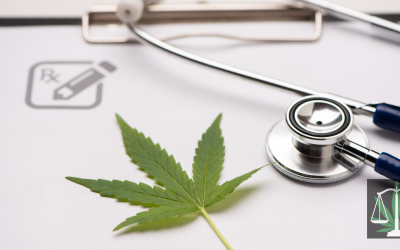The legalization of hemp in Michigan has opened significant opportunities for agricultural and industrial innovation since the passing of the 2018 U.S. Farm Bill. Defined as cannabis containing less than 0.3% THC, the psychoactive component in marijuana, hemp is non-intoxicating and versatile in its applications. This post explores the opportunities hemp has presented to Michigan growers, the regulatory framework provided by state authorities, and the importance of strategic licensing for Michigan hemp growers and processors.
Defining Hemp and Its Economic Impact
Hemp, often confused with its psychoactive counterpart marijuana, is legally distinct due to its low THC levels. This distinction has allowed it to become a powerhouse in various sectors such as textiles, construction materials, and especially in health and wellness products. Michigan, with its rich agricultural history, has adapted quickly to include hemp as a key component of its agricultural strategy, tapping into the growing demand for sustainable and eco-friendly products.
Michigan’s Regulatory Response
The legalization prompted Michigan’s government to establish a robust regulatory framework to manage Michigan hemp cultivation and processing effectively. An important step was the executive order by Governor Gretchen Whitmer, which moved the regulation of consumable hemp products to the Marijuana Regulatory Agency, subsequently renamed the Cannabis Regulatory Agency (CRA). This move was aimed at streamlining the oversight of all cannabis-related products under one regulatory body, enhancing the efficiency of regulation and support for the industry.
Licensing Framework for Michigan Hemp
The state of Michigan delineates two primary licenses related to hemp: the Hemp Grower Registration and the Hemp Processor-Handler License.
1. Hemp Grower Registration: Administered by the Michigan Department of Agriculture and Rural Development (MDARD), this registration allows individuals to grow or harvest live hemp plants or seeds. Notably, there are no limits on the number of plants or the amount of acreage, giving growers considerable flexibility. However, growers can only sell their harvest to processors and are not licensed to sell directly to consumers, which emphasizes the B2B nature of this license.
2. Hemp Processor-Handler License: This license is crucial for those looking to process, store, transport, or sell industrial hemp. It is available through the CRA and is indicative of Michigan’s intent to oversee the entire supply chain from cultivation to sale. The comprehensive nature of this license allows for a variety of operations, making it a pivotal element for the commercial viability of hemp.
Economic Opportunities and Challenges
The burgeoning Michigan hemp industry has not only created new economic opportunities but also introduced challenges, primarily regulatory and market stability concerns. The market for hemp products is still developing, and fluctuations in demand and price can significantly impact growers and processors. Furthermore, while the regulatory framework aims to support the industry, the evolving nature of laws and guidelines at both the state and federal levels can pose compliance challenges.
Support and Resources
Organizations like iHemp Michigan play a crucial role in supporting the Michigan hemp industry. As a non-profit trade association, iHemp Michigan provides vital resources, advocacy, and education for stakeholders, helping to navigate the complexities of the hemp market and fostering community within the industry.
Conclusion
Michigan’s proactive approach in regulating and supporting the hemp industry reflects its potential as a sustainable and economically beneficial crop. The strategic regulatory framework and licensing opportunities are designed to maximize this potential while ensuring compliance and safety. As the industry evolves, ongoing adaptation and support from both regulatory bodies and trade associations will be crucial to capitalize fully on the economic opportunities hemp offers in Michigan. For those interested in joining this green revolution, understanding the licensing process and staying engaged with industry support resources is essential.
Cannabis Licensing Law
Securing a hemp license and effectively managing the regulatory landscape requires in-depth knowledge, careful planning, and a strict adherence to compliance. Cannabis Licensing Law has the experience that is critical to the elements of hemp licensing.
It’s essential to remember that adherence to regulations, maintaining high quality standards, and precise marketing are crucial for cultivating a successful hemp enterprise. We stay current with regulatory changes, adapt your strategies accordingly, and always prioritize the quality and safety of your products. By embracing these principles and best practices, we can set your hemp business on a path to success in an expanding market.
For additional support and guidance on hemp licensing or any related legal concerns within the hemp industry, feel free to reach out to us and arrange a consultation. Cannabis Licensing Law is committed to assisting you as you build a prosperous and compliant hemp business.



